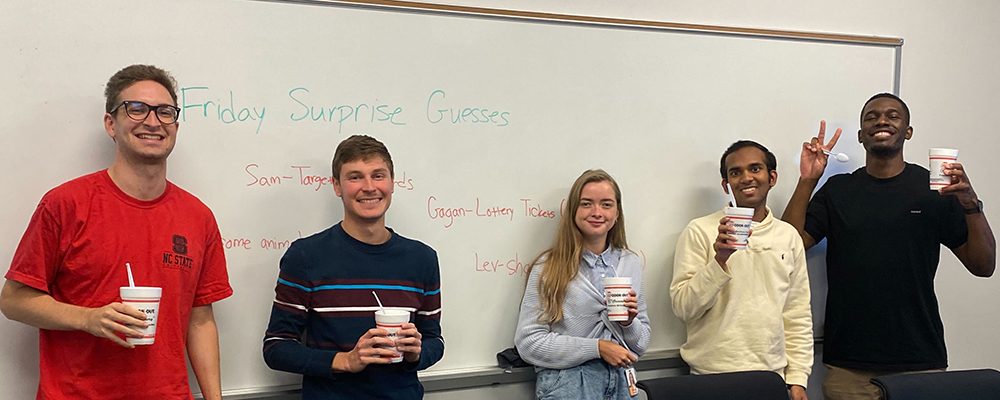The U.S. Bureau of Labor Statistics projects data science to experience a 35% growth within the next decade. The growing career field of data science provides a diverse range of career paths spanning many industries. In particular, a movement gaining traction is Data for Good, which strives to leverage data science to tackle complex societal challenges and to make a positive impact.
My interest in Data for Good stems from a longing for purpose and fulfillment. Coming from two generations of refugees, I aspire to make meaningful contributions to my community and communities in need through data-driven insights. I initially met Jessica Archibald, class of 2021, while applying to the Institute and learned about her Data for Good experience.

Jessica works as a data scientist at the UNC Cecil G. Sheps Center for Health Services Research and is in the fortunate position of being able to say she loves her job.
She became interested in Data for Good because she enjoys working with data and was looking for the missing piece on how to apply it toward social impact.
Sophia: What motivates you to work towards Data for Good?
Jessica: Personal connection to individuals of lower socioeconomic status. The struggle to access care. The personal connection makes me more passionate about public health and helping marginalized communities. It makes me feel like I contributed positively to society every day.
Sophia: What is the mindset to have when tackling a Data for Good project?
Jessica: Always, always understand the communities that will be affected by the decisions made on the data you work with. It is important to understand the data you work with. Any time you work with justice data, it is important to understand fairness across different groups of people. Understand how the model performs, and the missingness of data, and if it is affecting different groups of people. For example, data linkage algorithms that link people by name perform poorly for Latinx people because they have two last names. Make sure you understand how the data was created and how it affects different groups before just creating something so you don’t reinforce or perpetuate bias.
Sophia: How can data-driven insights be used to push for a social good cause?
Jessica: It helps to measure change. It is important to highlight the issues and put forth solutions to them. It is important to measure where they started and where they are now, so community stakeholders can see the progress being made on social issues.
Sophia: What challenges have you faced working on or implementing a Data For Good Project?
Jessica: Fortunately, the Data for Good space has grown significantly in recent years, with additional organizations and institutions seeking out data-driven insight. However, often these institutions and organizations are newer, and their data management and data organization are newer, which can cause issues with data quality.
Sophia: What advice would you give to someone interested in pursuing a career in Data for Good?
Jessica: Reach out to professionals in the particular Data for Good space you are interested in, so you can learn how Data for Good is being worked on for that space. Join professional organizations related to that type of work, and just start educating yourself on those issues in that space, as well as ways that data is being used. Educate yourself on the larger space and understand the holistic view in that Data for Good space. People involved in Data for Good are not just there for data science. They are especially there to do good for that space. Having the context knowledge will make people more interested in that space and more likely to talk with you if you did that research yourself.
Special thanks to Jessica for her generosity in participating in this interview and dedication to advancing the conversation on Data for Good.
Columnist: Sophia Ma
